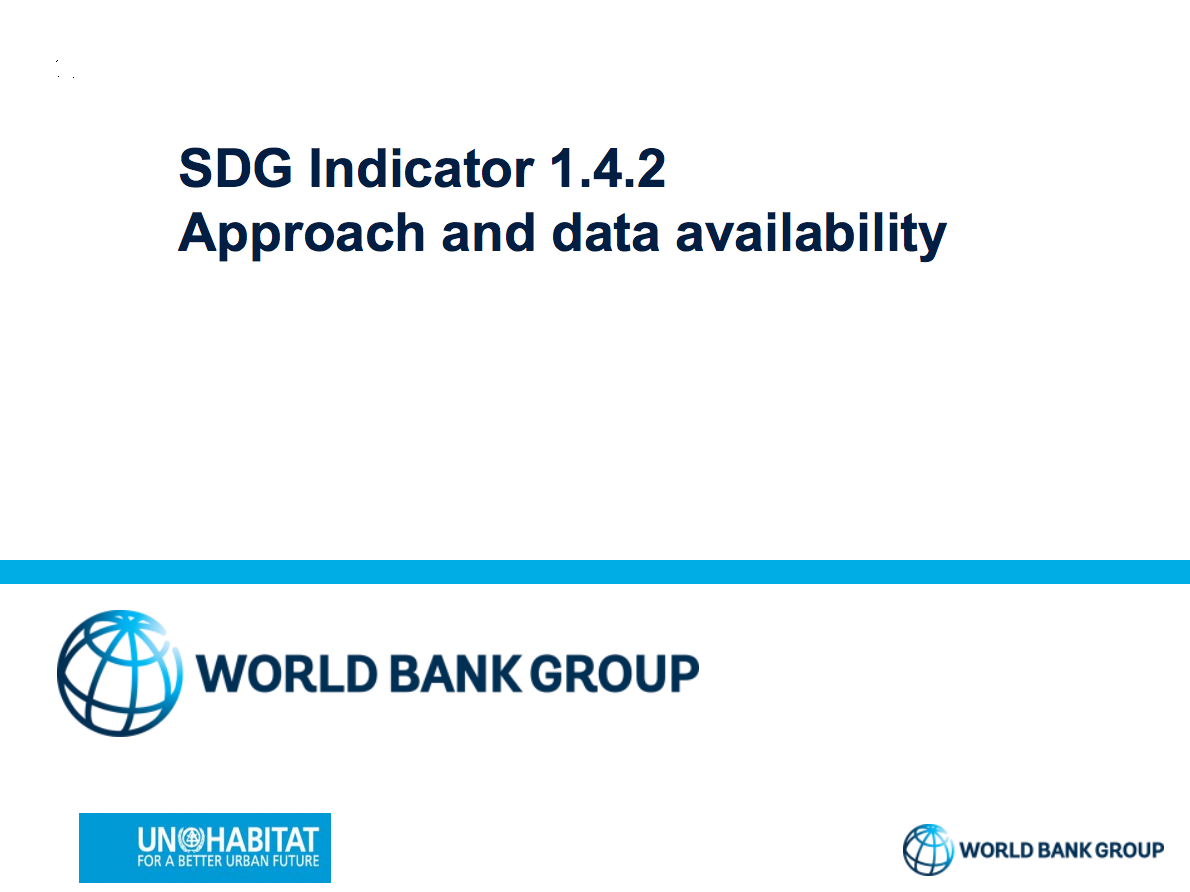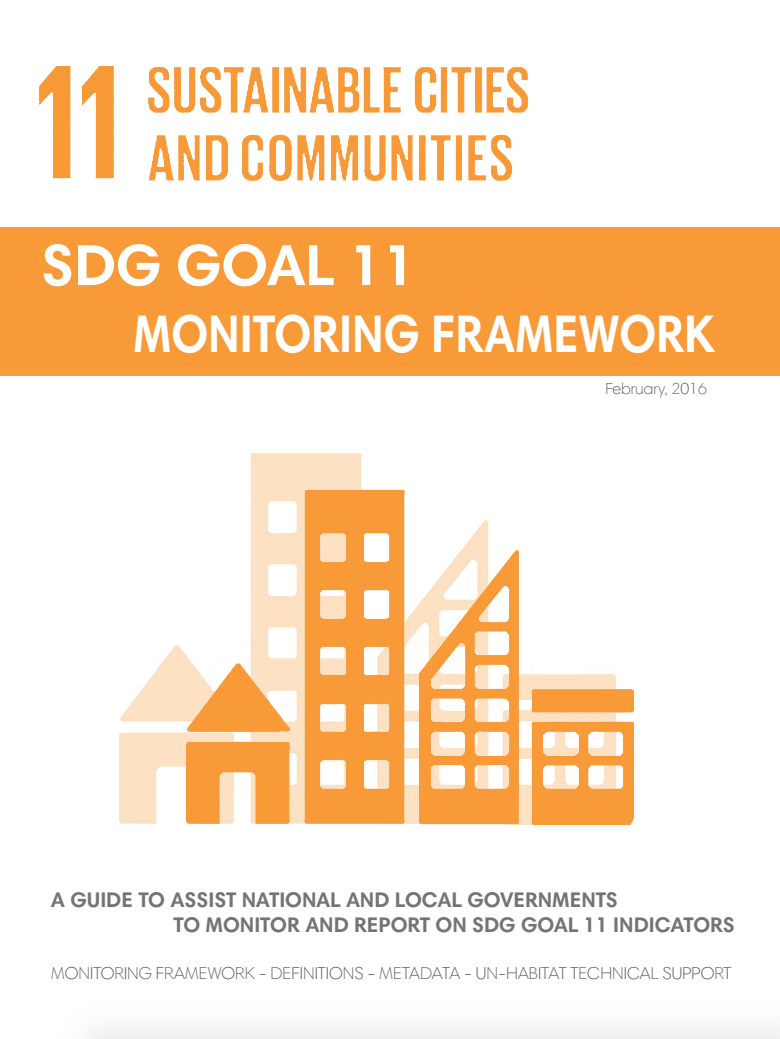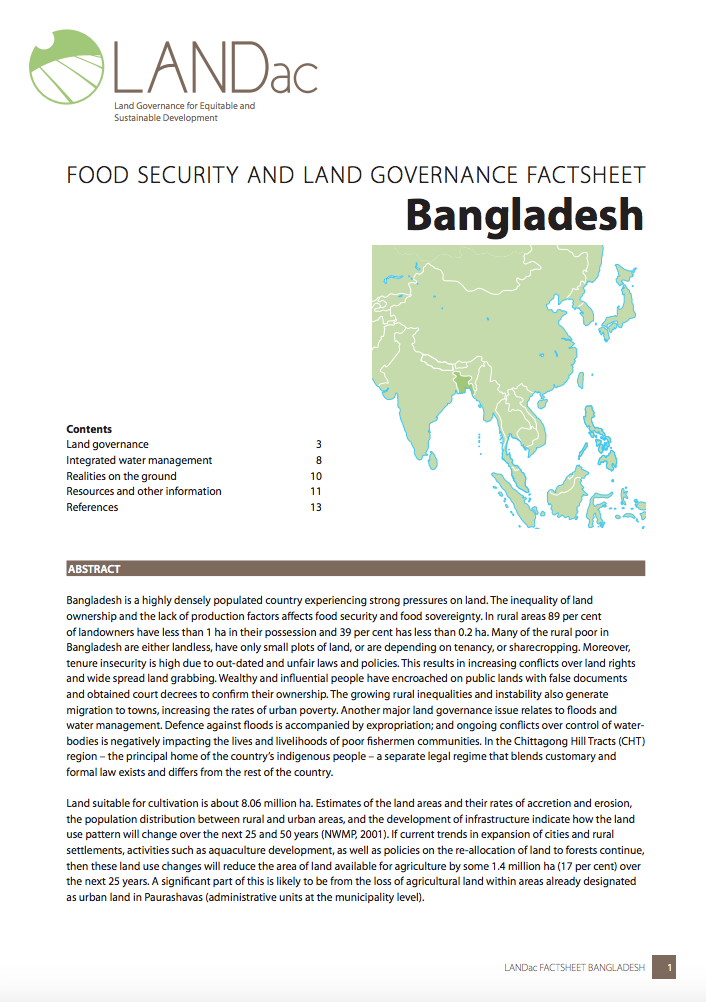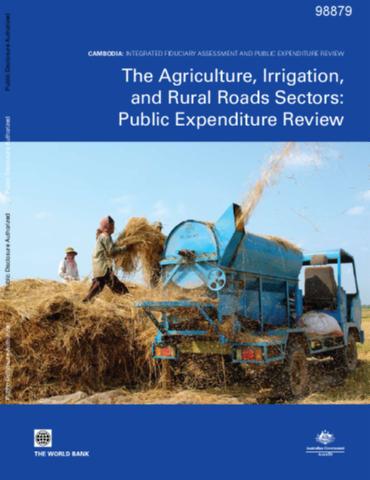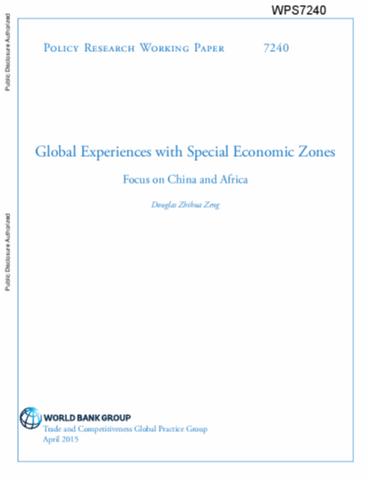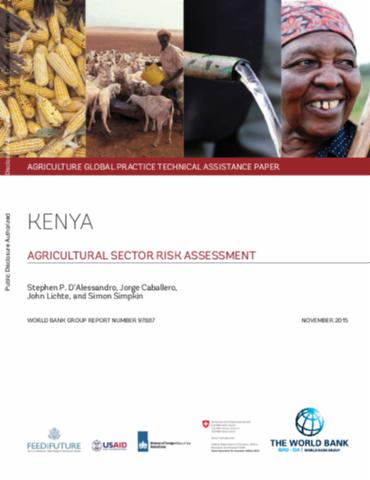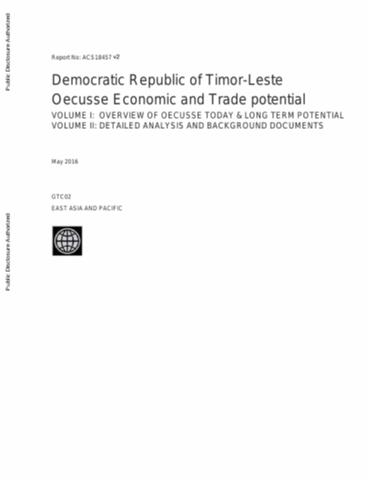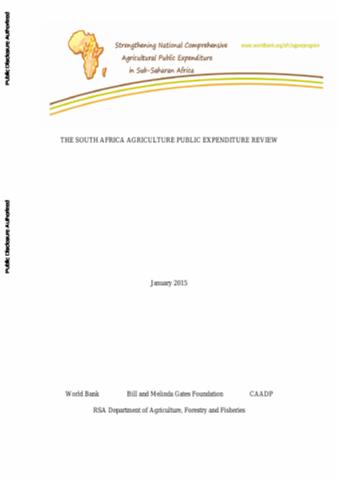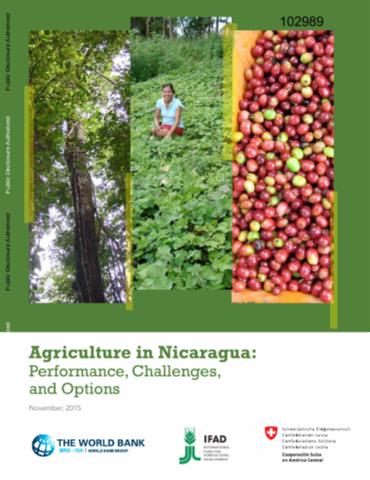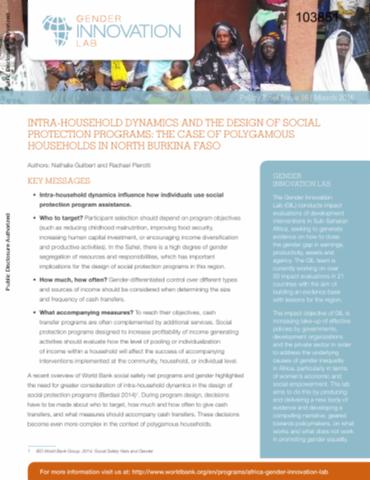SDG Indicator 1.4.2: Approach and data availability
Presentation at the LandAc conference in June 2017, by Thea Hilhorst, representative of the World Bank, custodian agency of the development of SDG indicator 1.4.2.
Thea Hilhorst presents the approach to measuring this indicator and the available data that can be used.

